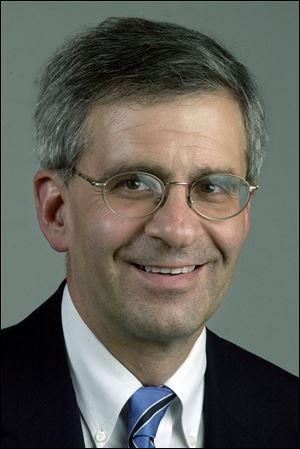
COMMENTARY
Monday deadline offers chance to evaluate Obamacare
3/30/2014
Shribman
An historic deadline beckons Monday. Most Americans without health insurance must have started to apply for coverage by that deadline or face a financial penalty. It’s the first time that health insurance has been extended to virtually all Americans, and it marks a landmark in American cultural and economic history.
The Monday deadline also has a more prosaic meaning. It brings to an end a frantic period during which the Obama Administration struggled to perfect its insurance-application process and then struggled to persuade Americans to use it. Neither struggle has been pretty. Nor has the political cacophony that has accompanied it.
But this deadline also offers Americans a health-care breather. The next enrollment period doesn’t begin until November. It is a good time to take stock of what the health-care debate has meant and what lessons can be learned from it. Here are some of them:
Vast social change is best accomplished in a bipartisan way. From the start, this was the Obama Administration’s principal error. It grew in part out of the Obama team’s determination to slam a health-care bill through Congress at the time of the new president’s greatest appeal and power. But it in fact diminished Mr. Obama’s appeal and power even as it undermined the moral authority of the legislation.
The blame isn’t Mr. Obama’s alone. Republicans swiftly and shrewdly identified this as the signature Obama initiative and were determined to deny him his triumph. But the burden of leadership — the burden of persuasion — was on the shoulders of the President.
The sales pitch must include an honest reckoning of limitations and likely problems. The Obama Administration sold its health-care initiative as requiring little more effort than filling out an NCAA basketball tournament bracket and as providing comprehensive care for everyone. That just wasn’t so.
“Could it be more clear? Less complicated? Absolutely,” says Diane Holder, president of the University of Pittsburgh Medical Center Health Plan in Pittsburgh. “Is it directionally correct? Yes. Will it ultimately help a sufficient number of people? I think so.”
Keep the process transparent. Obamacare was created in an atmosphere far more open than the environment that produced the Hillary Clinton health-care plan, which is one reason the Obama proposal is law today and the Clinton plan is not.
But the Obama team allowed a dangerous narrative to be created, the notion that the system it was creating was needlessly complicated. The truth is that the system is complicated not because of a government takeover, but because the administration left in place so many elements of the existing system.
“The irony of it all is that the reason it’s so complex is that the administration tried to preserve as much as possible from the current system,” says Stuart Altman, a Brandeis University economist specializing in health policy. “The result was a system even more complex.”
Sell to the middle, not to the extremes. Of all the guidelines that emerge from this episode, this is the one the administration has mastered best. The liberals who demanded a single-payer system and the conservatives who were going to oppose on principle anything Mr. Obama proposed are stewing. But the President has a health-care overhaul worthy of the name if not of everyone’s best hopes.
It would have been better had the software worked and if the national consensus were broader. But his critics on both sides of the argument are going to have to concede that history will attach health-care overhaul to Barack Obama’s name.
That may be the biggest lesson of all.
David Shribman is executive editor of the Pittsburgh Post-Gazette.
Contact him at:dshribman@post-gazette.com